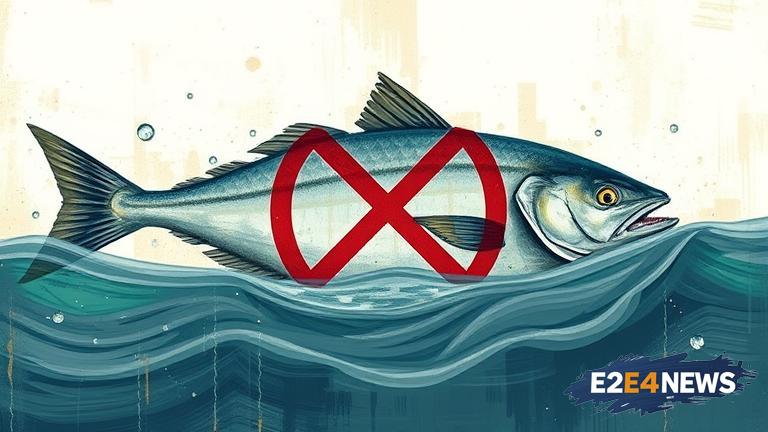The menhaden fishing industry has been a topic of discussion in recent years due to its significant impact on the marine ecosystem. Menhaden, a small fish species, play a crucial role in maintaining the balance of the ocean’s food chain. However, the large-scale harvesting of menhaden for use in fish oil and fishmeal has raised concerns among environmentalists and scientists. The primary concern is that the removal of such large quantities of menhaden could have a ripple effect throughout the ecosystem, potentially harming other marine species that rely on them for food. Furthermore, menhaden are also an important part of the ocean’s nutrient cycle, and their removal could disrupt this delicate balance. In response to these concerns, there have been calls for a moratorium on menhaden harvesting until further research can be conducted to determine the full extent of its effects. This research would aim to study the impact of menhaden harvesting on the ecosystem, including the effects on other marine species and the overall health of the ocean. The studies would also investigate the long-term sustainability of the menhaden population and the potential consequences of overfishing. Additionally, researchers would examine the role of menhaden in maintaining the ocean’s biodiversity and the potential impacts of their removal on the entire food chain. The demand for a halt in menhaden harvesting has been met with resistance from the fishing industry, which argues that the practice is sustainable and that the economic benefits outweigh the potential environmental costs. However, environmental groups and scientists argue that the precautionary principle should be applied, and that it is better to err on the side of caution when it comes to the health of the ocean. They point to the example of other marine species that have been overfished to the point of collapse, and argue that similar precautions should be taken to prevent this from happening to the menhaden population. The issue has sparked a heated debate, with some arguing that the economic benefits of menhaden harvesting outweigh the potential environmental costs, while others argue that the long-term health of the ocean should take priority. As the debate continues, it is clear that more research is needed to fully understand the impact of menhaden harvesting on the ecosystem. Until then, many are calling for a moratorium on the practice to prevent any potential harm to the ocean and its inhabitants. The fate of the menhaden population and the future of the ocean’s ecosystem hang in the balance, as policymakers and stakeholders weigh the competing interests and consider the best course of action. Ultimately, the decision to halt menhaden harvesting will depend on the outcome of the research and the ability of policymakers to balance the economic and environmental concerns. The menhaden harvesting industry is a significant contributor to the economy, but it is also important to consider the long-term sustainability of the practice and the potential consequences of overfishing. By taking a precautionary approach and prioritizing the health of the ocean, it is possible to find a solution that balances the competing interests and ensures the long-term sustainability of the menhaden population and the ecosystem as a whole.
